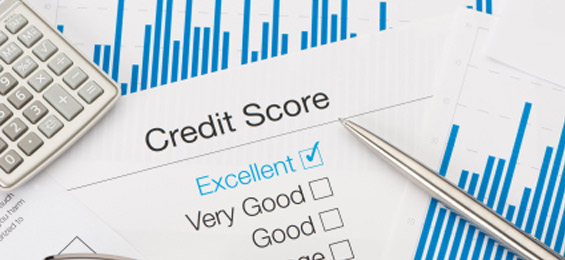Not performing a credit check is one of the most common mistakes first time home buyers make. Your credit score plays a very important role when buying a house, because it determines what loan you receive, and if you are even approved for a loan at all. The last thing you want is to find out that you have a low credit score while you’re sitting in a lender’s office, or after you’ve found the perfect home. There are several ways your credit score comes into play when buying a home, and several ways to improve your credit score if needed.
What Is A Credit Score?
Your credit score is a number that ranges from 300 to 850. Your credit score represents the ‘creditworthiness’ of a person. Lenders look at your credit score to evaluate how likely a person is to pay off his or her debts. If you have a low credit score, you will be considered a potential risk, and may be made to pay higher interest rates on the loan. Your credit score is affected by five different components:
Payment History
Your payment history makes up the most significant amount of your credit score at 35 percent. This refers to your account payment information, including your ability to make payments on time. In order to be considered a safe loan, lenders like to see that you consistently make payments on time. Late payments can lower your credit score.
Amount of Debt Owed
The amount of debt you owe, including on credit cards, student loans and car loans, makes up 30 percent of your credit score. Paying down debt can help raise your credit score.
Credit History Length
Your credit history length how long ago you opened your accounts and how you’ve managed them since you opened them makes up 15 percent of your credit score.
Types of Credit
The types of credit you have acquired make up 10 percent of your credit score.
New Credit
New Credit makes up 10 percent of your credit score. You typically do not want to open new lines of credit when you’re in the process of buying a house.
Why Is Checking Your Credit Score Important?
Checking your credit score before attempting to obtain a loan is important for a number of different reasons. As aforementioned, how high your credit score is determines the type of loan you receive and the interest rates you have to pay. Obviously, you’ll want to know your credit score before you walk into a lender’s office so you can have some idea of what to expect. But there are other important reasons to check your score before applying for a loan.
To begin with, there are a number of different ways to bring up your credit score. If you check your credit score before applying for a loan and find that it is less-than desirable, you can work to improve it. Then, why you apply for a loan, you can receive a higher one with lower interest rates than you would have if you had gone into the lender’s office blind. Secondly, there may be inaccurate information on your credit score. According to a study conducted by consumer group PIRG, 79 percent of credit reports contain some wrong information, and 1 in 4 reports contain errors damaging enough to deny consumers favorable loans. Checking your credit score before you apply for a loan can give you the chance to remove these errors.
How Can You Improve Your Credit Score?
There are a number of different ways to improve your credit score. In addition to checking your credit score to remove inaccuracies, you can pay down your debt and pay your bills on time. Setting up payment reminders or enrolling in automatic payment programs can help you pay your bills on time, which can significantly affect your score as a payment history makes up 35 percent of your overall score. Paying down the amounts of debt you owe, including paying down your credit card balance and paying off the loans you have will help improve your score as well.











